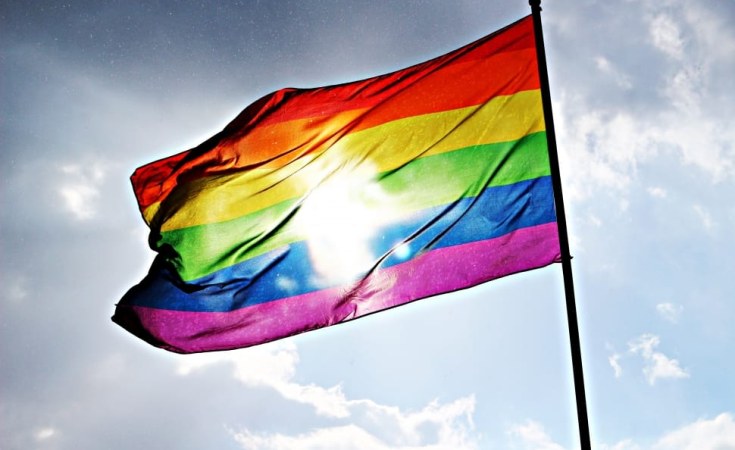Former ombudsman John Walters says the current government is oppressing the lesbian, gay, bisexual, transgender, queer/questioning, intersex and other (LGBTQI+) community in the same way South Africa's apartheid regime has oppressed people of colour in Namibia.
Walters yesterday responded to minister of home affairs, immigration, safety and security Albert Kawana tabling the marriage bill, which prohibits same-sex marriage, in the National Assembly.
"It's the same people who suffered under that colonial repressive legislation. And now we are starting all over again, prohibiting love between people of the same sex . . . and out of love, obviously, marriage," he said.
Walters said the South African regime prohibited everything related to marriage and colour.
"And now we have two people of the same sex, who may not marry, or may not love, or may not do that. I find it ridiculous," the former ombudsman said.
The government on Tuesday argued it is the duty of the country's executive branch of power to protect the values, cultural norms and traditions of Namibian people.
"Therefore it is imperative that legislative reforms be put in place to make it categorically clear and beyond any shadow of a doubt that same-sex marriages should not be recognised in Namibia, because they are contrary to the cultural norms, traditions, ideology and religious beliefs of the Namibian people," Kawana said.
Walters, however, said the legislature are representing their own views.
BILL
The marriage bill would replace the Marriage Act of 1961.
"The bill provides for the solemnisation of marriages in Namibia, the validation and recognition of certain marriages (including the recognition of foreign marriages) as well to provide for incidental matters," the ministry said in a statement.
This bill is the first step in cementing the definition of spouses.
"A number of laws will have to be amended or repealed to clearly define 'marriage' and 'spouse'," Kawana told fellow lawmakers.
The bill clarifies that same-sex marriages are not valid in Namibia - regardless of where they are solemnised.
It also introduces measures to address "marriages of convenience" and especially those between Namibian citizens and foreign nationals.
WE WILL CHALLENGE IT
Equal Namibia's Omar van Reenen says the organisation will challenge this bill in court.
Last month, the criminalisation of sexual acts between men in Namibia was declared unconstitutional and invalid.
"The High Court in its verdict said the morals and values of society cannot be used to regulate whose rights can be protected in this country.
"The values of this country that must be protected are the values bestowed in the Constitution - not the moral beliefs of a certain sector of society," Van Reenen says.
"The only light of day this bill will see is the halls of the Supreme Court," they say.
Van Reenen said the recent High Court ruling made it clear that Namibians have a right to equality under Article 10.
They further pointed out that the minister's assertion that Namibia is a Christian country is constitutionally flawed.
"It is not . . . this is a secular state," Van Reenen says.
Last year, the Supreme Court ruled it was a violation of the constitutional rights to equality and dignity to recognise opposite-sex, but not same-sex, marriages for immigration purposes.
This principle applies equally to any attempt to amend the Marriage Act or the meaning of the word 'spouse' in the Immigration Control Act to subvert the Supreme Court's ruling.
The Constitution is Namibia's supreme law, according to its article 1.
Positive Vibes Trust executive director Flavian Rhode says it is disheartening to witness repeated attempts by conservative factions within the country's leadership to legislate and regulate how individuals love and how they live their lives.
"Such actions have no place in a progressive and inclusive Namibia that values the dignity and rights of all its citizens," Rhode says
The executive director argues that the draft legislation that explicitly denies equal rights to same-sex individuals is deeply concerning.
"Those entrusted with decision-making are urged to carefully reconsider passing legislation that only serves to sow division and perpetuate exclusion within our society.
"Such actions contradict the principles of a progressive and inclusive Namibia that values the dignity and rights of all its citizens," Rhode says.


